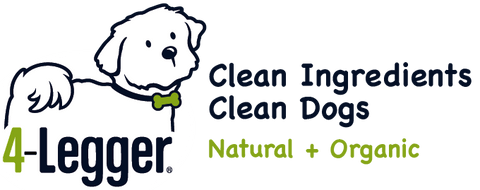Why You Do Not Want Parabens In Your Dog's Shampoo
Yesterday I read a 2016 research paper from researchers at the University of California, Berkley.
While the paper was pretty techy, the results were easy to understand.
Previous studies on parabens (known to trigger irritation and allergic reactions in the skin) looked at just the parabens and their role in toxicology despite the fact that researchers (Routledge 1998) had previously demonstrated parabens also mimic estrogen in the body (act as xeno-estrogens or xeno-parabens).
The 2016 study I read last night looked at parabens and xeno-estrogens (synthetic or natural compounds that mimic estrogen). Specifically, they looked to see how they worked together and their role in breast cancer.
Their research found that exposure to estrogens and some xeno-estrogens are associated with an increase in cell proliferation and an increased risk of breast cancer.
It makes sense right? Bodies don't just take one chemical and process it. Our bodies, and our dog's bodies are holistic organisms and they process and metabolize everything that they are exposed to.
Exposure to Parabens and Xeno-parabens
Parabens are found in MANY dog shampoos (and in human products too) with these commonly used ingredient names: butylparaben, methylparaben, propylparaben, benzylparaben, ethylparaben, and isopropylparaben.
In 2006, studies demonstrated that parabens are rapidly absorbed through intact skin.
In 2010, researchers from the Centers for Disease Control and Prevention (CDC) conducted a study to assess exposure to methyl, ethyl, propyl, and butyl parabens in a representative sample of people above the age of 6. They analyzed 2,548 urine samples and detected methyl paraben (MP) and propyl paraben (PP) in 99.1% and 92.7% of the samples, respectively.
In 2018, a study in Albany, New York looked at the concentrations of parabens in 58 commercially available cat and dog foods. Additionally, they analyzed urine samples from cats and dogs in the local area.
The researchers found that dry food contained higher levels of parabens and their metabolites than wet food. In addition, the researchers reported cat food had higher paraben concentrations than dog food.
They found that parabens, especially methyl paraben, and their metabolites were found in all pet food and urine samples they tested. The study didn't test dog grooming products such as shampoo, but did note that for dogs these types of products are a contributing factor to their paraben exposure.
Why All Parabens Must be Avoided?
A 2004 study testing for parabens in human breast cancer tumors found traces of 5 different parabens in 19 of 20 tumors (Darbre 2004). Research has also found that parabens can trigger growth responses in estrogen-sensitive breast cancer cells (Byford 2002; Darbre 2002, 2003; Pugazhendhi 2007).
In short, the ability for parabens to have a direct effect and to mimic cell receptors is a big deal in both the development of and growth rate of cancer.
The Effect Of Parabens In My Life
In real life, this means my breast cancer and tumor markers which were receptor positive for estrogen, progesterone, and HER2 thrived in the presence of these ingredients. It was so aggressive my tumor grew to the size of a golf ball in one month’s time.
Couple that with research that demonstrates parabens can disrupt the hormone system (Routledge 1998; Oishi 2001, 2002a, 2002b; Byford 2002; Darbre 2002, 2003; Inui 2003; Gomez 2005; Mikula 2006) and you have enough compelling evidence to demonstrate why you should never exposure yourself or your dog to these ingredients.
Have you ever thought about the fact that the ingredients in your dog's shampoo gets into their bodies and also yours?
It does.
These shampoo ingredients can contribute to the uncontrolled growth of cells that cause cancer or play a role in hormone disruption.
While researchers don't know the cause of the cancers, it is attributed to a combination of genetics, environment and lifestyle.
We know that in dogs, only about 5% of cancers are genetic. The remaining 95% are environment and lifestyle.
The dog shampoo you use IS a big deal.
It all comes down to using safe and non-toxic ingredients.
We owe it to ourselves and our 4-legged family members to pay attention to ingredients and to not put any ingredients on our bodies or our dog's bodies that contribute to health issues.
Why 4-Legger Dog Shampoo is Safer
As I'm sure you know, all of 4-Legger's organic dog shampoo products are paraben free, safe and non-toxic. That was our choice and commitment when 4-Legger began and our decision to voluntarily adhere to the strict standards of the National Organic Program, ensures that we will continue to lead the industry in making better and safer products that you can trust.
Additional Citations:
Pan S, Yuan C, Tagmount A, Rudel RA, Ackerman JM, Yaswen P, Vulpe CD, Leitman DC. 2016. Parabens and human epidermal growth factor receptor ligand cross-talk in breast cancer cells. Environ Health Perspect 124:563–569.
Environ Health Perspect. 2010 May;118(5):679-85. doi: 10.1289/ehp.0901560. Epub 2010 Jan 4.
Environ Sci Technol. 2018 Mar 20;52(6):3727-3737. doi: 10.1021/acs.est.7b05981. Epub 2018 Mar 7.





